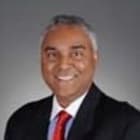commentary Commentary
Commentary: The contest in Indonesia will be closer than expected
Concerns over the economy, a noisy digital media landscape and the rise of religious forces are shaping what looks set to be a contentious election for Indonesia, says RSIS’ Leonard C Sebastian.
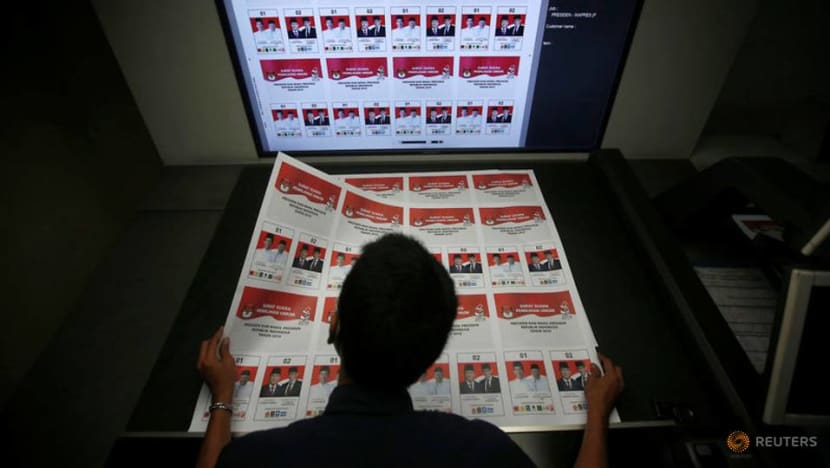
A worker checks ballot papers printed for upcoming Indonesian presidential election at a factory in Jakarta, Jan 20, 2019. (Photo: Reuters)
SINGAPORE: The current political mood in Indonesia is deeply polarised.
I have been travelling to Indonesia to observe its elections since 1999. On the surface, the 2019 election seems like a tame and rather low-key event.
The televised debates have been monotonous with neither presidential nor vice-presidential candidates rigorously contesting each other over Indonesia’s future direction.
The opinion polls conducted by Jakarta-based pollsters in January including Saiful Mujani Research and Consulting and Australian-based Roy Morgan had predicted a potential landslide win for the incumbent Joko Widodo (Jokowi) at an advantage of about 20 percentage points over his opponent Prabowo Subianto.
More recent polls suggest the gap is narrowing. A recent poll by Litbang Kompas done between Feb 22 and Mar 5 shows Widodo likely to win 49.2 per cent of the vote, surpassing 37.4 per cent for Prabowo.
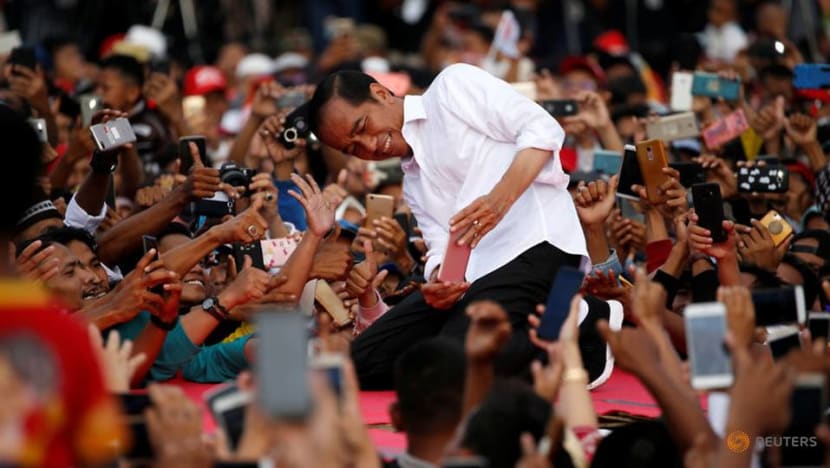
If my most recent travels are an indication, there seems to be a huge discrepancy between polling and actual conditions on the ground. The presidential election on Wednesday (Apr 17) will be closer than expected.
READ: Two visions for the 'unlikely democracy', as Indonesians head to polls this month, a commentary
PLENTY AIDING PRABOWO BUT WHO IS CAMPAIGNING FOR JOKOWI?
President Jokowi had formed a coalition but in reality, none of the parties in his coalition seem to be campaigning for him.
More troubling was my discovery that candidates from his own party, Indonesian Democratic Party of Struggle (or PDI-P), are not campaigning for the President and ignoring directives from the party elite.
READ: Jokowi, an upstart, 'a sort of outsider' who employs hard-nosed tactics, a commentary
Political parties enjoy the coattail effect from both presidential candidates. PDI-P, Gerindra, Golkar, PKB, Demokrat, PKS and NasDem are projected to pass the threshold of 4 per cent of all votes to gain representation in parliament.
But local candidates do not see benefits. The majority of candidates recognise how personality politics can be polarising for voters at the local level and prefer not to identify with a presidential nominee.
Prabowo does not seem badly disadvantaged. His supporters are more militant. There are larger numbers of volunteers working independently, using their own funds, and mobilising others on the basis of religion and economic populism to support his candidacy.
READ: 'Identity politics' - How Indonesia's presidential race is run
I expect to see an Operasi Subuh conducted by groups aligned to Prabowo like the Front Pembela Islam, Forum Umat Islam and Alumni 212 to bring people from the kampong and the townships out to the polling booth – operations employed in the 2017 Jakarta gubernatorial election.
VULNERABLE GROUPS AND DISCONTENT OVER THE ECONOMY
The economy will figure prominently in this election. Annual economic growth has been hovering at 5 per cent, not the 7 per cent Jokowi promised back in 2014, plus investment has not materialised at the rates expected.
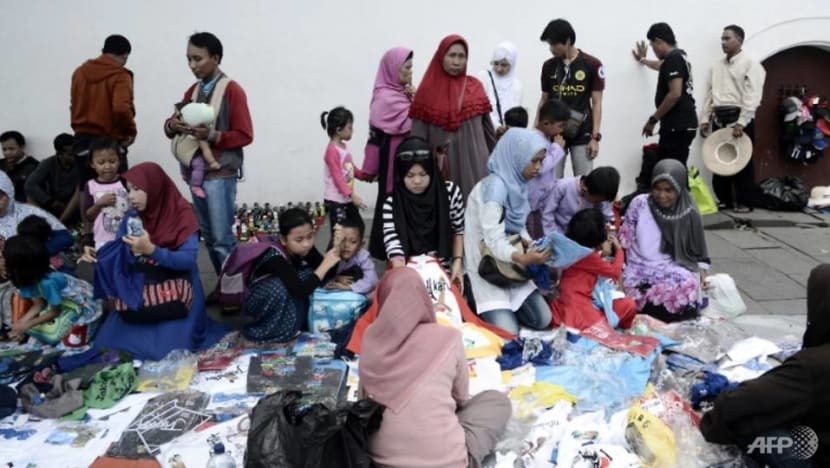
According to well-respected and independent SMERU Research Institute, 90 million Indonesians remain vulnerable to poverty.
These near-poor groups are highly susceptible to inflation or a recession. Many workers and small business people I interviewed expressed disappointment that despite the scale of investment in infrastructure, tangible benefits to people on the street seem minimal.
Jokowi’s plans for hand-outs, whether the issuance of a “pre-work card” providing benefits to the unemployed, promised subsidised food for poor families or a programme to ensure higher education for high-school graduates, seem to have hit a road block due to a lack of implementation.
Jokowi’s track record in infrastructure development is commendable. In only five years, he has built 600km of roads, compared to former President Susilo Bambang Yudhoyono’s 250km over 10 years. But the trouble is toll roads generally benefit people wealthy enough to own a car and pay the tolls.
Social welfare, finance, investment and industrial sector issues are chief in the election, and were raised in the fifth presidential debate over the weekend. The increasing costs of basic commodities has featured front and centre, an issue Prabowo has capitalised on.
In his recent campaign and press conferences, Prabowo spoke at length on reducing the electricity tariff within his first 100 days. Such populist policies will play out well for him in his attempt to reach out to disadvantaged communities and tap into pockets of discontent.
IDENTITY POLITICS AND DIGITAL MEDIA A POTENT FORMULA
The rising political temperature in the public sphere is also the consequence of social media discourse in the wake of a highly polarising Jakarta gubernatorial election.
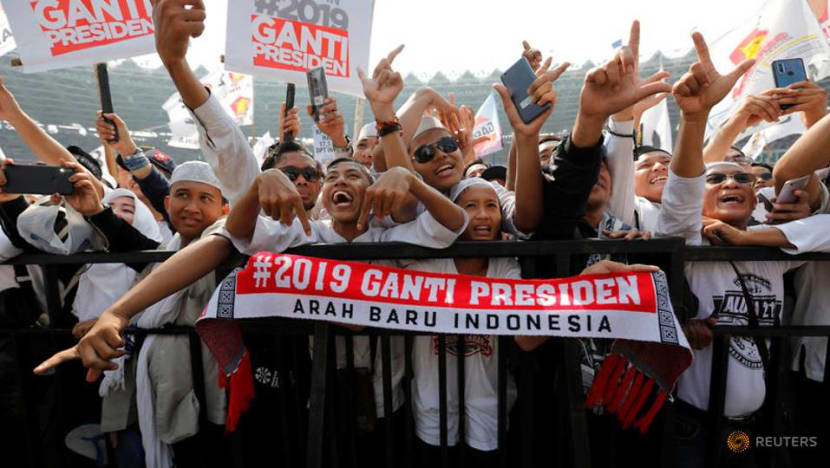
Digital media has become an important space for Indonesians to debate potent identity issues - like what it means to be pribumi and the place of Islam in Indonesian politics and society.
The politicisation of religion is creating the assumption that Prabowo-Sandi better represents Islamic political interests.
The selection of Kyai Ma’ruf Amin was supposed to help Jokowi gain ground with conservative Muslims. Yet, my fieldwork in Indonesia suggests the strategy has not worked.
A large proportion of the Nahdlatul Ulama voter base in Central and East Java that voted for Jokowi will no doubt vote for him again.
But the Ma’ruf Amin factor has seemingly little impact in a conservative Islamic province like South Sulawesi which Jokowi won in 2014. Based on my studies, there is a large number of votes that will very likely now switch to Prabowo-Sandi.
Polarisation is also fuelled by black campaigning, anti-Chinese xenophobia and hoax news which has resulted in an alternative digital public sphere promoting alternative discourses.
READ: The Big Read - Religion, fake news take centre stage as divided Indonesia goes to the polls
Most Indonesians are not well-informed about public affairs and easily take to misinformation that goes viral. This was evidenced in the Ahok blasphemy case.
HIGH APPROVAL RATINGS, BUT REGIONAL CHALLENGES
The surveys conducted by pollsters indicate a high approval rating for Jokowi for his achievements. However, this may not necessarily secure victory for him. In the Jakarta election, Ahok had a high approval rating.
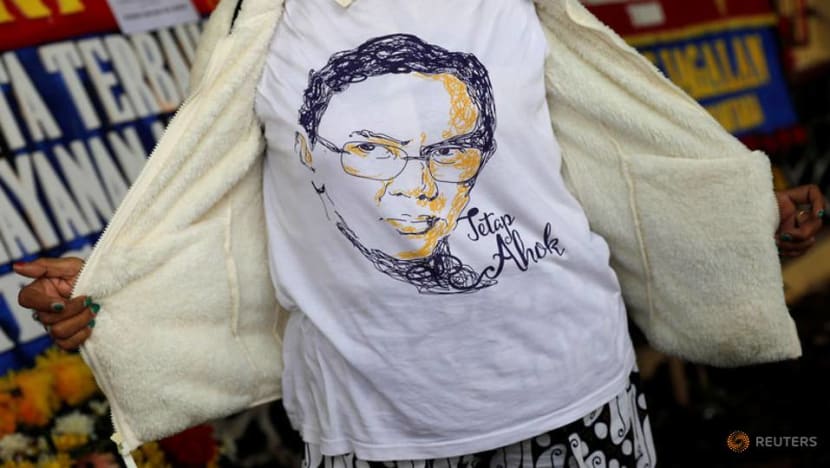
Much will revolve around public perceptions of the state of the economy. Although Jokowi has kept inflation under control, the perception of a large proportion of those I interviewed was that the government is not doing a good job.
Jokowi seems stuck. Despite five years of careful policy planning, especially in the economic field, his popularity rating still hovers around his 2014 result of 53 per cent. Jokowi won the 2014 election by a margin of 8.4 million votes.
He is vulnerable in provinces with large, dense urban populations where voter mobilisation by the other side is a more straightforward affair - South Sulawesi, Banten and West Java and Jakarta - and could easily lose the election there.
Jokowi is expected to win in Central Java but the margin of victory will be slim. Even in Surakarta, Jokowi’s hometown, my interviews give me the impression the race there will be close.
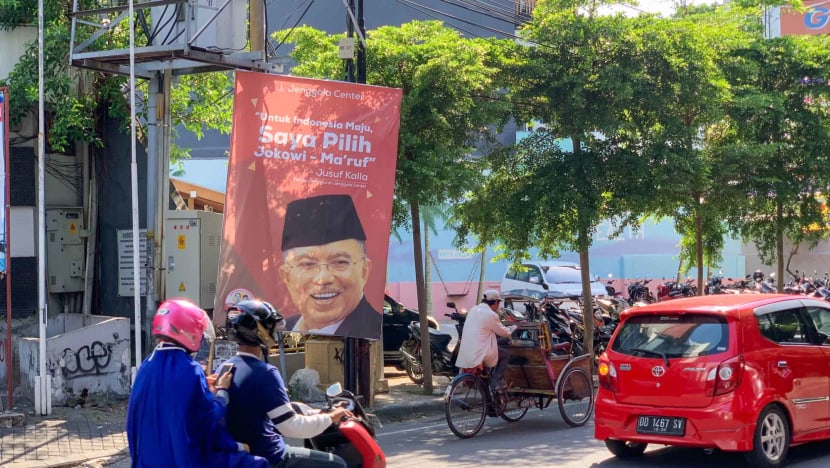
The key to his securing a second term of office lies in East Java where he must win at least 65 to 70 per cent of the vote to negate Prabowo’s gains in Java and the outer provinces, especially West Java and South Sulawesi where in 2014, the Jusuf Kalla factor was a significant advantage for Jokowi.
In Java, Jokowi has a strong presence in the rural areas while Prabowo is more dominant in the urban centres.
Fieldwork by my colleagues indicate that Jokowi is vulnerable in many cities in East Java particularly the Tapal Kuda areas – Jember, Situbondo, Madura and even Surabaya.
The Madurese, a significant ethnic group in East Java, is expected to vote for Prabowo following the advice of prominent local religious leaders there.
UNDECIDED VOTERS, RELIGION HOLD FINAL SAY
In the final analysis, it is not what surveys say that matter but voter perceptions, particularly the orientations of undecided voters.
The advice of local leaders, whom Indonesians tend to consult, will be a critical determining factor.
A growing number of Indonesians are spoiling their votes (a phenomenon known as golput) – almost 29 per cent in the 2014 presidential election. If the golput factor is high among millennials, it will affect Jokowi more than Prabowo.
READ: Standing up to be counted - The millennial election candidates looking to shake up Indonesian politics
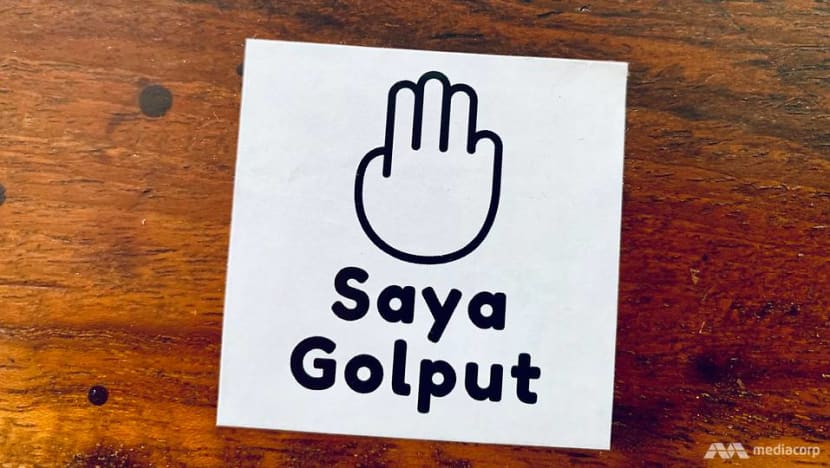
A large proportion of the millennial population have attended rohis classes in high school and are now deeply Islamic. Wildly popular preachers who use social media to discuss trending topics, including Ustaz Hanan Attaki and Ustaz Abdul Somad, have millions of youths following them.
READ: In Indonesia, one party’s lonely battle for minority voices, a commentary
Such forces are creating a vibrant marketplace for religious advice, challenging the positions of older, established players in this space, including the Nahdlatul Ulama and Muhammadiyah.
Their audiences, especially women, will be drawn to Sandiaga Uno and his campaign image as a post-Islamic leader that combines Islam with economic management.
For all these reasons, my view is that the headline race will be close.
If the winner gains a narrow win, the closeness of the result, coupled with potential election irregularities, due to the General Elections Commission (KPU)’s lack of familiarity with managing a new five-tiered election system, may result in the loser issuing a legal challenge against the results, while trying to delegitimise the KPU.
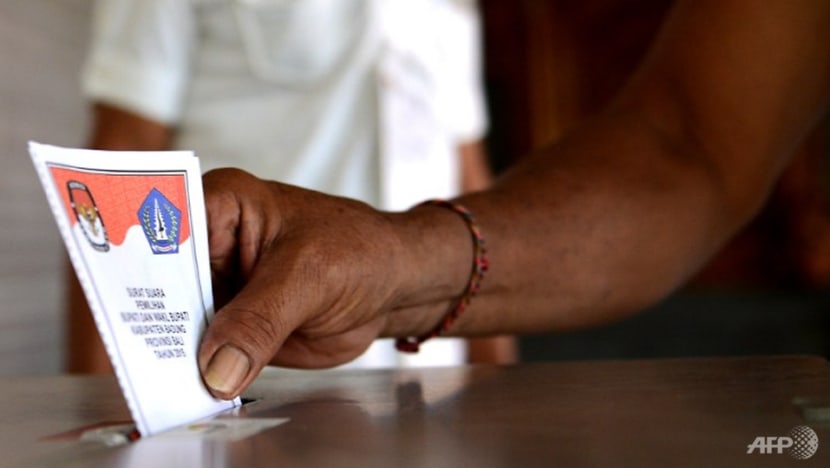
While the national KPU is professional and neutral, officials at provincial and local KPU units might be swayed by political and financial considerations. The likelihood of fraud cannot be dismissed in a complex election system involving millions of voters as well as agents.
This means that unless Jokowi wins decisively, he could be saddled with a significant legitimacy problem.
Leonard C Sebastian is Associate Professor and Coordinator, Indonesia Programme, S Rajaratnam School of International Studies, Nanyang Technological University and Professor (Adjunct), Institute for Governance and Policy Analysis, University of Canberra.








